
Ola Landgren, MD, PhD, looks at results from the phase 2 CARTITUDE-2 trial of ciltacabtagene autoleucel for patients with multiple myeloma and 1 to 3 prior lines of therapy presented at the 2021 ASCO Annual Meeting.

Your AI-Trained Oncology Knowledge Connection!


Ola Landgren, MD, PhD, looks at results from the phase 2 CARTITUDE-2 trial of ciltacabtagene autoleucel for patients with multiple myeloma and 1 to 3 prior lines of therapy presented at the 2021 ASCO Annual Meeting.
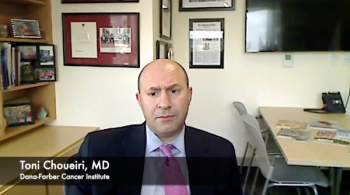
Choueiri detailed combination treatments with follow-up data presented at the 2021 ASCO Annual Meeting.
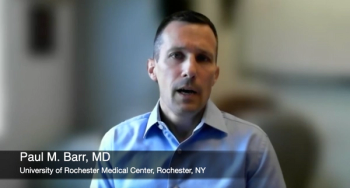
CancerNetwork® sat down with Paul M. Barr, MD, at the 2021 ASCO Annual Meeting to talk about what data has the greatest potential to impact standard treatment of chronic lymphocytic leukemia.
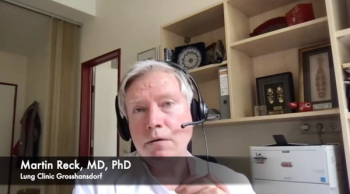
Reck mentioned the IMpower010 and CheckMate 816 trials investigating treatment options for patients with non-small cell lung cancer.
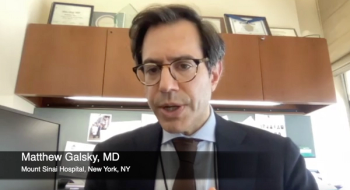
CancerNetwork® sat down with Matthew D. Galsky, MD, at the 2021 ASCO Annual Meeting to discuss his thoughts on research he believes has the greatest potential to impact standard of care treatment of bladder cancer.

CancerNetwork® sat down with Matthew D. Galsky, MD, at the 2021 ASCO Annual Meeting to talk about data from a phase 2 trial examining the use of neoadjuvant nivolumab plus gemcitabine/cisplatin prior to bladder-sparing surgery.
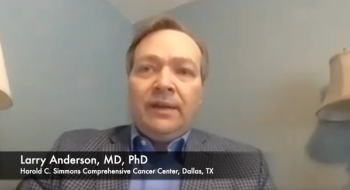
CancerNetwork® sat down with Larry Anderson, MD, PhD, at the 2021 ASCO Annual Meeting to talk about updated data from the KarMMa trial of CAR T-cell therapy idecabtagene vicleucel to treat patients with relapsed or refractory multiple myeloma.
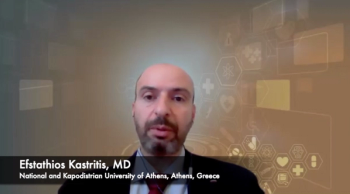
The phase 3 ANDROMEDA trial demonstrated positive efficacy and safety data in the treatment of newly diagnosed light chain amyloidosis.
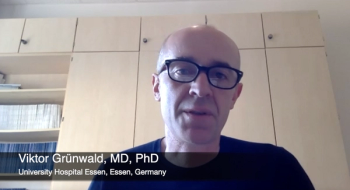
CancerNetwork® sat down with Viktor Grünwald, MD, PhD, at the 2021 ASCO Annual Meeting to talk about how new data from the CLEAR trial serve to further inform clinicians about lenvatinib and pembrolizumab for first-line renal cell carcinoma.
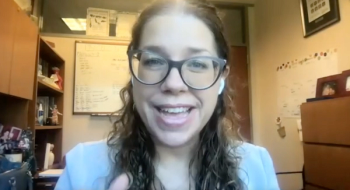
CancerNetwork® sat down with Shannon N. Westin, MD, MPH, at the 2021 ASCO Annual Meeting to talk about the use of adavosertib in PARP inhibitor–resistant ovarian cancer.

CancerNetwork® sat down with Paul M. Barr, MD, at the 2021 ASCO Annual Meeting to talk about data from RESONATE-2 showing sustained progression-free and overall survival in patients with chronic lymphocytic leukemia being treated with ibrutinib in the frontline setting.
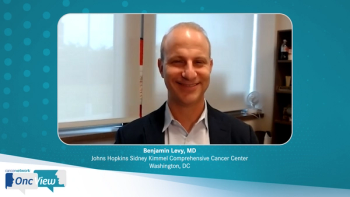
Dr Benjamin Levy describes how the results of the IMpower133 trial and subsequent FDA approval will impact clinical practice and the outlook for patients with extensive-stage small cell lung cancer.

A review of safety and efficacy data demonstrated by the IMpower133 clinical trial of atezolizumab plus chemotherapy as first-line treatment for extensive-stage small cell lung cancer.
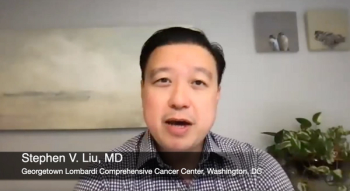
CancerNetwork® sat down with Stephen V. Liu, MD, at the 2021 American Society of Clinical Oncology Annual Meeting to talk about pralsetinib for patients with non–small cell lung cancer harboring RET fusions and adequate biomarker testing in the frontline.
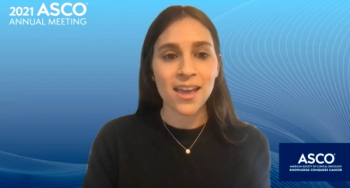
CancerNetwork® sat down with Alison Schram, MD, to discuss her thoughts on research with the greatest potential to positively influence patient care being presented at the 2021 American Society of Clinical Oncology Annual Meeting.
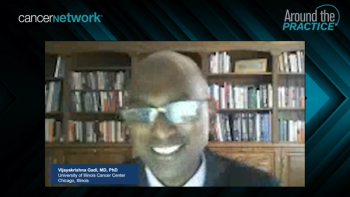
Key opinion leaders discuss recent advancements and future directions in the HER2+ breast cancer space.
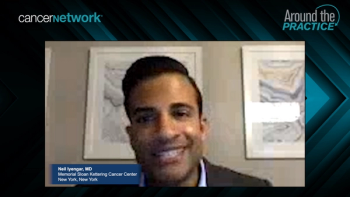
Expert panelists react to polling questions and give their input on the management both symptomatic and asymptomatic interstitial lung disease in HER2+ breast cancer, also touching on this impact in the era of COVID-19.
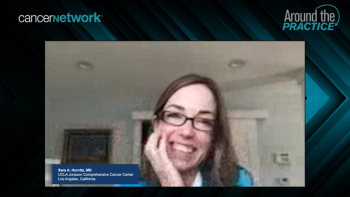
Experts discuss the careful monitoring of potential interstitial lung disease symptoms, how they proceed if symptoms progress, and how they handle this in patients who are asymptomatic.
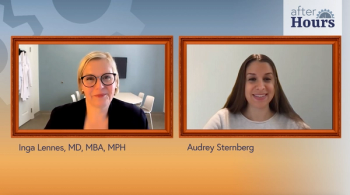
During an After Hours segment of Medical World News®, Inga Lennes, MD, MBA, MPH, spoke about her passion for healthy cooking and how it helps her unwind after a busy week of treating patients.
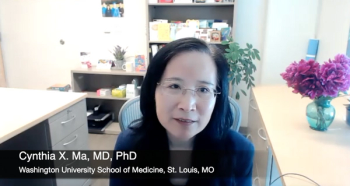
CancerNetwork® spoke with Cynthia X. Ma, MD, PhD, of Washington University School of Medicine in St. Louis, following the American Association for Cancer Research Annual Meeting 2021 about the benefits of the meeting to clinical trial investigators.

CancerNetwork® sat down with Health and Wellness expert Sonia Jhas to discuss best practices for staying active on a busy, demanding schedule.
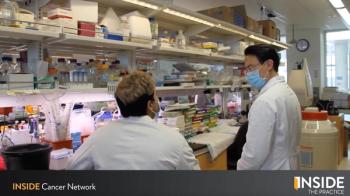
CancerNetwork® spoke with Albert H. Kim, MD, PhD, about a new Brain Tumor Center at Siteman, for which he is the inaugural director.
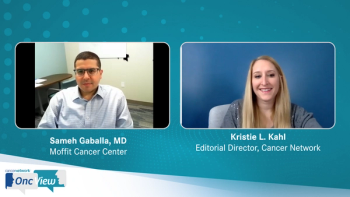
Sameh Gaballa, MD, focuses on unmet needs and the future of the treatment landscape for follicular lymphoma.
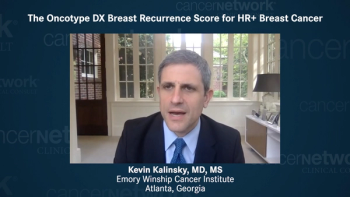
Implications for using the Oncotype DX Breast Recurrence Score to help tailor therapy for patients with HR-positive, HER2-negative breast cancer based on data demonstrated in the TAILORx and RxPONDER studies.

A key opinion leader reviews the role of PI3K kinase inhibitors in the third-line or later settings for the treatment of follicular lymphoma.
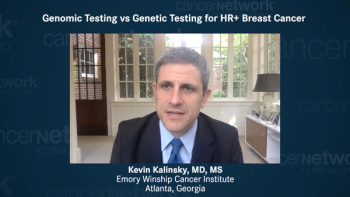
A discussion on the types of information provided by genetic tests and genomic assays and recommendations for use in HR-positive breast cancer.
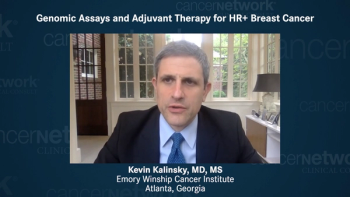
The value of utilizing a genomic test to help guide decisions for adjuvant therapy for HR-positive breast cancer.

A discussion regarding typical response rates to frontline therapy for extensive-stage small cell lung cancer and considerations for incorporating an immunotherapy agent into first-line treatment.

An overview of current gaps in treatment for patients with extensive-stage, or metastatic small cell lung cancer.

Experts in breast cancer respond to polling questions surrounding the recognition of pneumonitis and interstitial lung disease.